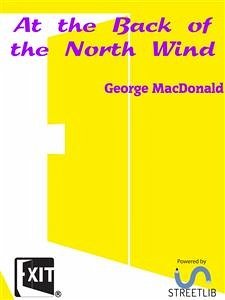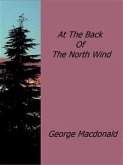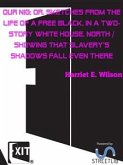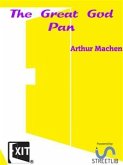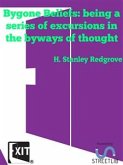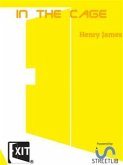CHAPTER I. THE HAY-LOFT
I HAVE been asked to tell you about the back of the north wind. An old Greek writer mentions a people who lived there, and were so comfortable that they could not bear it any longer, and drowned themselves. My story is not the same as his. I do not think Herodotus had got the right account of the place. I am going to tell you how it fared with a boy who went there.
He lived in a low room over a coach-house; and that was not by any means at the back of the north wind, as his mother very well knew. For one side of the room was built only of boards, and the boards were so old that you might run a penknife through into the north wind. And then let them settle between them which was the sharper! I know that when you pulled it out again the wind would be after it like a cat after a mouse, and you would know soon enough you were not at the back of the north wind. Still, this room was not very cold, except when the north wind blew stronger than usual: the room I have to do with now was always cold, except in summer, when the sun took the matter into his own hands. Indeed, I am not sure whether I ought to call it a room at all; for it was just a loft where they kept hay and straw and oats for the horses.
And when little Diamond—but stop: I must tell you that his father, who was a coachman, had named him after a favourite horse, and his mother had had no objection:—when little Diamond, then, lay there in bed, he could hear the horses under him munching away in the dark, or moving sleepily in their dreams. For Diamond's father had built him a bed in the loft with boards all round it, because they had so little room in their own end over the coach-house; and Diamond's father put old Diamond in the stall under the bed, because he was a quiet horse, and did not go to sleep standing, but lay down like a reasonable creature. But, although he was a surprisingly reasonable creature, yet, when young Diamond woke in the middle of the night, and felt the bed shaking in the blasts of the north wind, he could not help wondering whether, if the wind should blow the house down, and he were to fall through into the manger, old Diamond mightn't eat him up before he knew him in his night-gown. And although old Diamond was very quiet all night long, yet when he woke he got up like an earthquake, and then young Diamond knew what o'clock it was, or at least what was to be done next, which was—to go to sleep again as fast as he could.
I HAVE been asked to tell you about the back of the north wind. An old Greek writer mentions a people who lived there, and were so comfortable that they could not bear it any longer, and drowned themselves. My story is not the same as his. I do not think Herodotus had got the right account of the place. I am going to tell you how it fared with a boy who went there.
He lived in a low room over a coach-house; and that was not by any means at the back of the north wind, as his mother very well knew. For one side of the room was built only of boards, and the boards were so old that you might run a penknife through into the north wind. And then let them settle between them which was the sharper! I know that when you pulled it out again the wind would be after it like a cat after a mouse, and you would know soon enough you were not at the back of the north wind. Still, this room was not very cold, except when the north wind blew stronger than usual: the room I have to do with now was always cold, except in summer, when the sun took the matter into his own hands. Indeed, I am not sure whether I ought to call it a room at all; for it was just a loft where they kept hay and straw and oats for the horses.
And when little Diamond—but stop: I must tell you that his father, who was a coachman, had named him after a favourite horse, and his mother had had no objection:—when little Diamond, then, lay there in bed, he could hear the horses under him munching away in the dark, or moving sleepily in their dreams. For Diamond's father had built him a bed in the loft with boards all round it, because they had so little room in their own end over the coach-house; and Diamond's father put old Diamond in the stall under the bed, because he was a quiet horse, and did not go to sleep standing, but lay down like a reasonable creature. But, although he was a surprisingly reasonable creature, yet, when young Diamond woke in the middle of the night, and felt the bed shaking in the blasts of the north wind, he could not help wondering whether, if the wind should blow the house down, and he were to fall through into the manger, old Diamond mightn't eat him up before he knew him in his night-gown. And although old Diamond was very quiet all night long, yet when he woke he got up like an earthquake, and then young Diamond knew what o'clock it was, or at least what was to be done next, which was—to go to sleep again as fast as he could.

